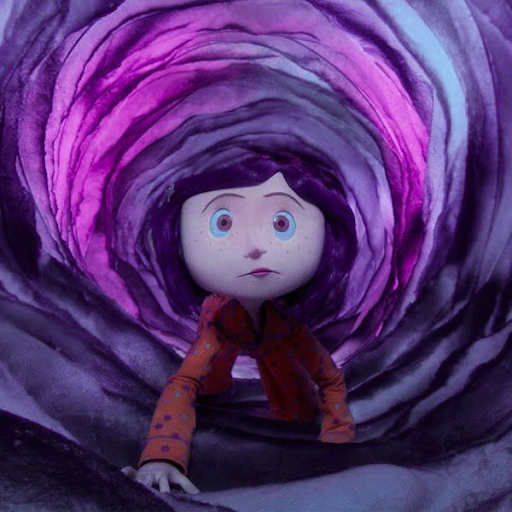Coraline (2009) is a stop-motion animated film with a slightly dark, eerie vibe. Adapted from Neil Gaiman’s novel, it’s a tale that lingers.
A friend introduced me to Coraline’s character, sparking my curiosity to watch the movie. It might be a bit spooky for younger kids, but after seeing it, I found it a compelling film packed with meaningful messages.
The Story
The plot follows Coraline, a girl who moves into a new home with her parents—a creaky old mansion with quirky neighbors. Life feels bleak as her busy parents barely notice her. Then, by chance, she discovers a secret door sealed behind a wall, leading to another world… I’ll leave the rest for you to enjoy in the film itself.
My Takeaways
Now, I’ll share the messages I drew from it. These are my personal reflections—some might resonate with you, others might not.
The “other world” of the witch Beldam reveals that everyone has a shadow in their soul. Characters like Miss April and Miss Miriam cling to regrets of their glamorous past (stuffing their dead dogs as a bizarre way to freeze time), while Mr. Bobinsky stubbornly chases his dream of a jumping mouse circus (testing cheeses on his rodents, though it’s unclear if he’s feeding them or not).
They’re not just puppets in Beldam’s hands—they’re shaped by the darkness within, which she deftly exploits. Beldam gets human selfishness, so she crafts a world that indulges it. Her own craving for love mirrors that same self-centeredness.
Tracing why Coraline stumbles into Beldam’s realm, you see her parents fixated on their work, her new friend absorbed in his games, and Coraline yearning for attention.
If everyone only focuses on their own issues and needs, life might sink deeper into shadowy caves. The black key and button eyes left that impression on me.
It’s not the dark forces seeking us out—wittingly or not, we’re the ones drawn to them without realizing it.
A Digital Parallel
On another note, I couldn’t help but connect Beldam’s fake world to the virtual spaces we inhabit online.
Beldam’s realm offers tempting food, fun companions, and caters to Coraline’s every whim. There, she’s the universe’s center, costing her nothing—except her eyes. Like the three kids before her, lured into trading their eyes, they became toys and slaves to this sinister witch.
Beldam’s spider-like form reminds me of the web—the digital avatars we use daily. Dissatisfied with reality, plenty of folks dive into it, stroking their egos. They make or break rules, dodge accountability, grab what they want, and trample what they don’t in a virtual world they think is theirs alone.
Even I was struck by the eerie overlap. These digital “Beldams” target kids like Coraline: lost, lonely, skeptical, sometimes resentful of real life.
Courage and Questions
The film wraps up with Coraline bravely rescuing her parents, but how many real-life kids would have the guts to reject those black button eyes for their own?
Do we need two worlds to feel happiness?
Final Thoughts
I hope you enjoy watching Coraline. It’s an animated film, after all—no need to overthink it unless you want to.















